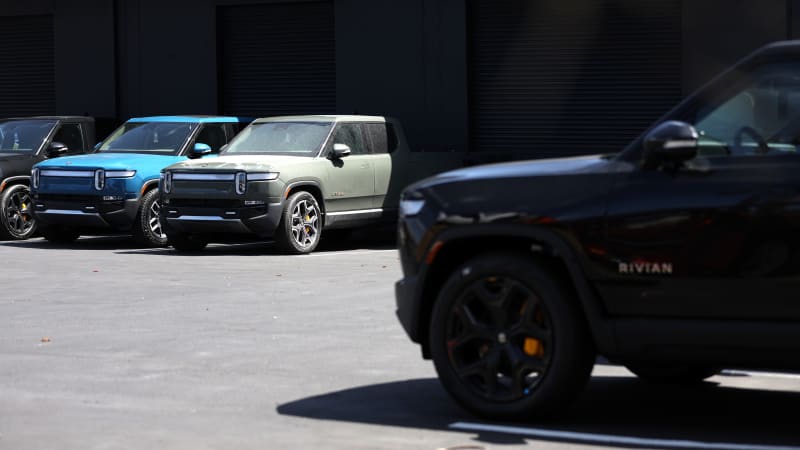Rivian misses revenue estimate but maintains full-year production outlook

Rivian Automotive missed Wall Street estimates for third-quarter revenue, but shares rose after hours as the electric-vehicle maker reported a smaller-than-expected loss and a higher number of preorders, and reaffirmed its full-year production outlook.
The company, which went public a year ago, also said its smaller R2 vehicle family will begin production in 2026, a year later than previously announced, at Rivian’s planned $5 billion Georgia plant.
The automaker ended the third quarter with $13.8 billion in cash, down from $14.9 billion at the end of the second quarter.
“We remain confident in our ability to fund operations with cash on hand through 2025,” Rivian said in an SEC filing late on Wednesday.
Shares were volatile in after-market trading, rising as much as 7% after falling nearly 12% in the regular session.
In September, Rivian and Mercedes Benz said they are planning a joint venture to produce electric vans in a factory in Eastern Europe within the next few years. Rivian also has a contract to supply 100,000 electric delivery vans to its biggest investor, Amazon.com Inc.
The news has not been so good for Rivian’s rivals.
UK electric van startup Arrival warned investors on Tuesday that it did not have enough cash to assure its survival through 2023. EV maker Lucid on Tuesday reported a $670 million loss for the third quarter and said its order bank had dropped since the second quarter.
Shares of Tesla Inc, Rivian’s chief competitor, sank 7% to their lowest point in two years after CEO Elon Musk sold nearly $4 billion worth of Tesla stock following his purchase of Twitter.
“While we think Rivian’s balance sheet is in better shape than most other upstart EV manufacturers from a liquidity standpoint, the company is far from reaching the scale needed to drive down its unit costs and move closer to profitability,” CFRA Research analyst Garrett Nelson said on Wednesday.
CFRA estimates Rivian’s cost of goods sold at about $220,000 per vehicle versus an average selling price of $81,000 in the quarter.
As they have for other EV makers, supply-chain disruptions have pressured Rivian, forcing the company earlier this year to cut its production forecast by half to 25,000 vehicles.
In the third quarter ended Sept. 30, the electric-vehicle maker delivered 7,363 vehicles, up from 4,467 units in the prior quarter. Production through nine months is about 14,000. Rivian said it was adding a second shift at its Normal, Illinois, plant.
Quarterly revenue was $536 million, compared with analysts’ expectations of $551.6 million, according to Refinitiv data.
The company’s quarterly net loss widened to $1.72 billion compared with a $1.23 billion loss a year earlier. Adjusted loss per share of $1.57 beat analysts’ expectations of an adjusted per-share loss of $1.82.
Capital expenses in the quarter fell to $298 million, from $467 million a year earlier, as the company continues to conserve cash and push some spending back into 2023.
Rivian lowered its full-year capex forecast to $1.75 billion, from its previous estimate of $2 billion.
Related video:



